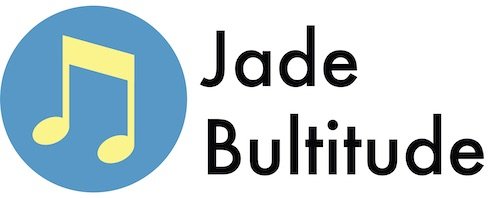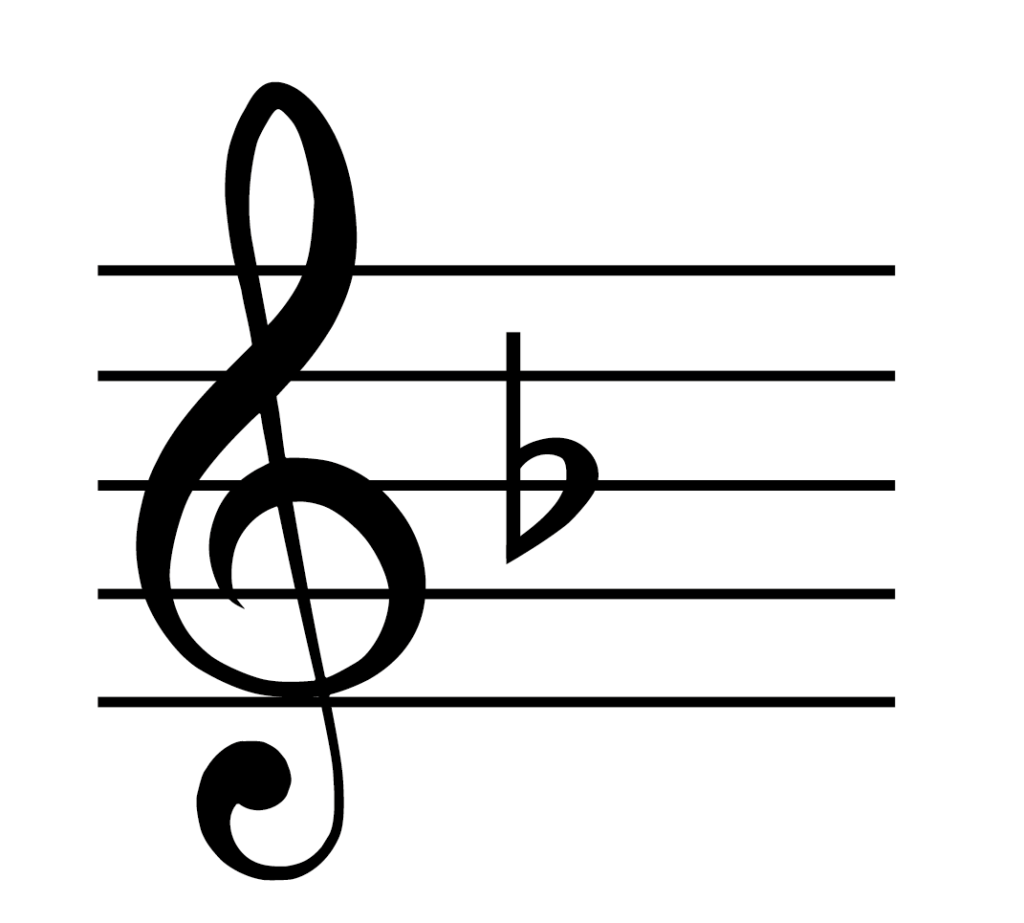
Learning you scales is so important and the F major scale is no exception. In this major scale the first note is F. This scale also includes one flat and does not include a sharp. The F major scale includes the notes F, G, A, Bb, C, D, E, F. In this post we will expand your knowledge of the F major scale and it’s chords in detail so that you have a strong overview of what this scale is, the scale degree names, intervals within the scale, how to recognize music written in this scale, what it sounds like and what it looks like in the bass clef, treble clef, alto clef and tenor clef staves and much more!
Want to learn about different scales and keys? Have a look at our Complete Guide to Scales and Key Signatures.
Where do I start when learning the F major scale?
The best place to start when thinking about scales is the circle of fifths.
To know more about the circle of fifths, make sure to check out all the information and exercises on this website about the circle of fifths if you are not completely sure on what the circle is and how it works.
The starting point on the circle of fifths in C major because there are no sharps or flats within this scale.
F major is the first scale to the left of C major, on the circle of fifths, meaning that it will have one flat. This flat is B flat.
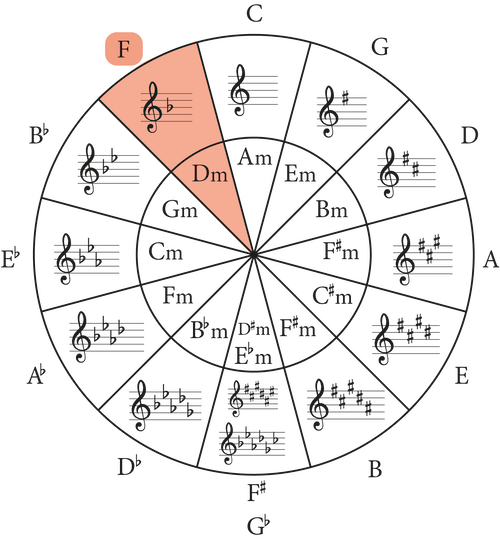
[thrive_leads id=’12672′]
As mentioned in our C major blog, major scales always follow the same pattern of tones and semitones (whole steps and half steps)
This is as follows:
Tone, Tone, Semi-tone, Tone, Tone, Tone, Semi-tone
Whole Step, Whole step, half step, whole step, whole step, whole step, half step
Whichever note you start on, you will always achieve the major scale starting on this note.
The F major scale is simply this pattern but starting on the note F.

ToneGym- The Ultimate Ear Training App
ToneGym allows you to improve your ear with a range of games, interactive and competitions.
Or check out our complete review of ToneGym.

What does the F major scale look like on the piano keyboard?
Below you can see what the F major scale looks like on the piano keyboard!
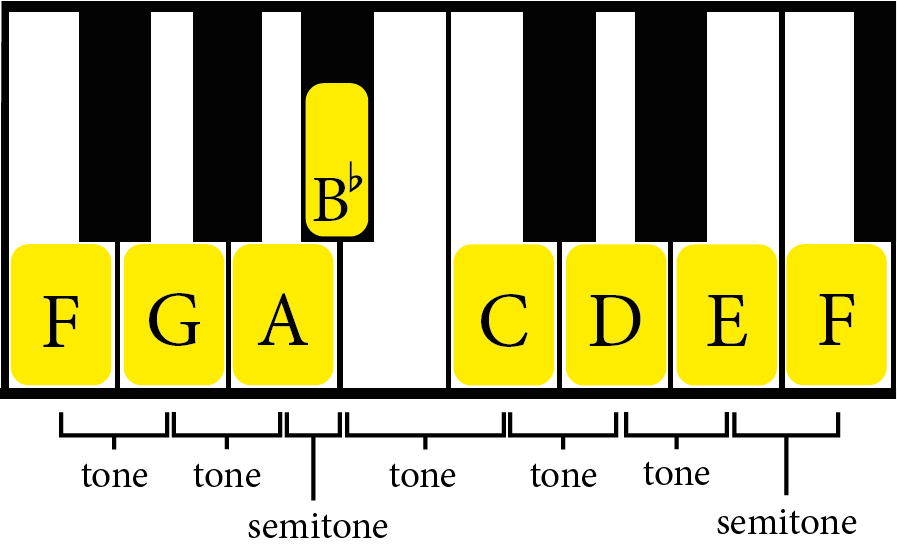
As you can see, if we were to play this scale on the piano keyboard we make use of just one black key with the rest of the notes being played in white keys.
What does the F major scale look like on the stave?
What does this scale look like on the stave?
The pitches/note names of the scale are as follows: F G A Bb C D E F
Below you can see the F major scale written on the treble clef, bass clef, alto clef and tenor clef.
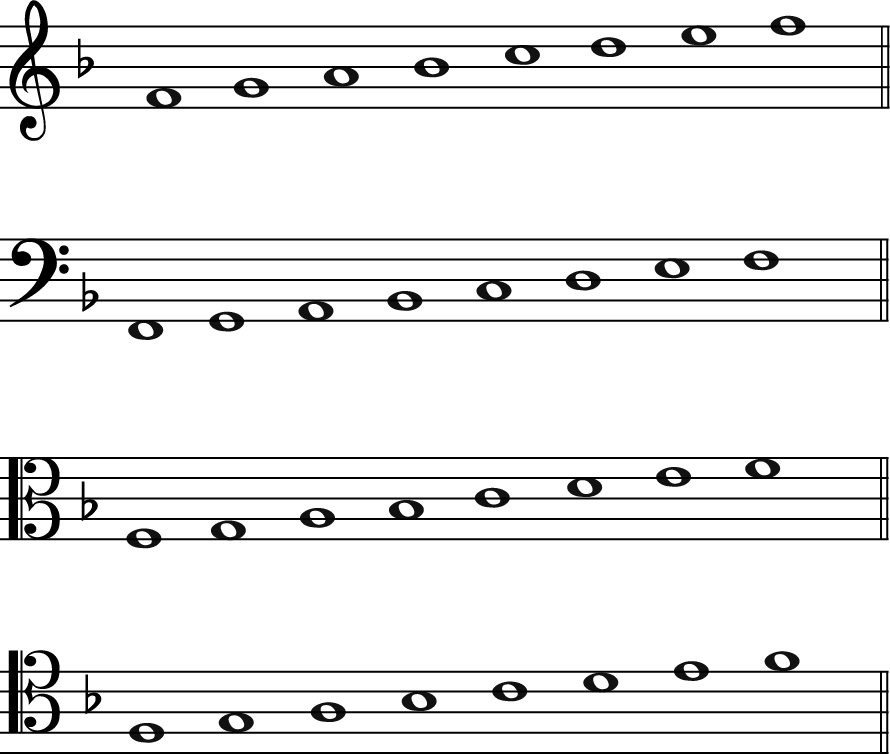
Rather than writing the flat signs on the individual notes, we can now make use of the key signature. Because every single B is flat, we can simply write this at the start of the piece!
Above we have written one octave of F major. It is important to note that this can also be written an octave higher or even an octave lower!

[thrive_leads id=’12672′]
Scale degree names in F major
As with all scales, each note name is not only given a letter but it is also labelled with a number. We call this number a scale degree.
The scale degrees are as follows:

Alongside the scale degrees we can also give each letter a name!
F – tonic
G- Supertonic
A -Mediant
Bb – Subdominant
C – dominant
D – submediant
E – leading note/leading tone
F – tonic
What do we mean when we say a piece is ‘in the key of F major’?
If we say that a piece of music is in the key of F, this means a few things:
- The key signature will have one flat symbol, this being B flat.
- The tonic (or home note) of the piece will be F! This note will sound the most stable in the whole piece.
- The piece will use notes only from this scale, these could be in any octave.
- The chords used will be those chords that are in F major
What are the chords of F major?
When writing out chords we always use Roman Numerals so it is important to make sure you are familiar with the Roman Numerals up to seven!
Here are the chords of F major:
I – F major, Tonic Chord
II – G minor, Supertonic Chord
III – A minor, Mediant Chord
IV – Bb major, Subdominant chord
V – C major, Dominant chord
Vi – D minor, Sub median chord
Vii – E diminished chord, leading note chord
ToneGym- The Ultimate Ear Training App
ToneGym allows you to improve your ear with a range of games, interactive and competitions.
Or check out our complete review of ToneGym.

What are the notes in these chords?
I – F major chord – F, A, C
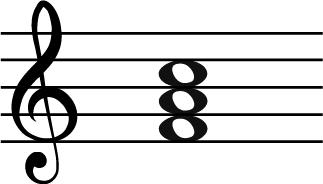
ii – G minor chord – G, Bb, D
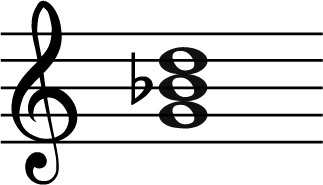
iii – A minor chord – A, C, E
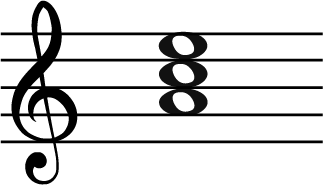
IV – Bb major chord – Bb, D, F
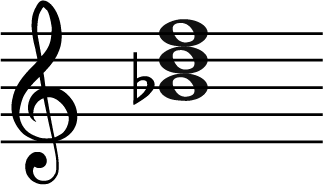
V – C major chord – C, E, G
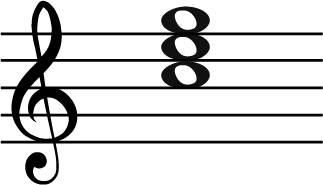
vi – D minor chord – D, F, A
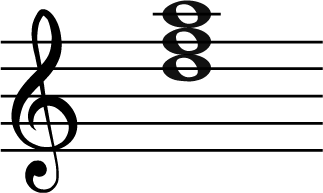
Viio – E Diminished chord – E, G, Bb
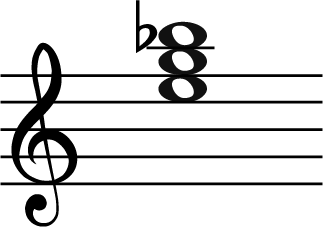
For more on this, see our in-depth guide to chords in F Major.
Why are some of these chords labelled in lower case?
Chords are usually written in two different ways
Capital for MAJOR Chords
Lowercase for MINOR Chords
To know more about chords then make sure to click here!
What is the relative minor of the f major scale?
Remember, all major scales have relative minor scales. The relative minor scale to the F major scale is the D minor scale. The D minor scale uses the same notes as the F major scale but it starts on D! This means the pattern of tones and semitones (whole steps and half steps) will be slightly different.
The notes in D natural minor are: D, E, F, G, A, Bb, C, D
To learn more about the D minor scale make sure to read our post on it here!
I hope that has helped your understanding further of the scale of F major! Remember to check out our Music Theory Resources to help to practice your skills.
[thrive_leads id=’12672′]
